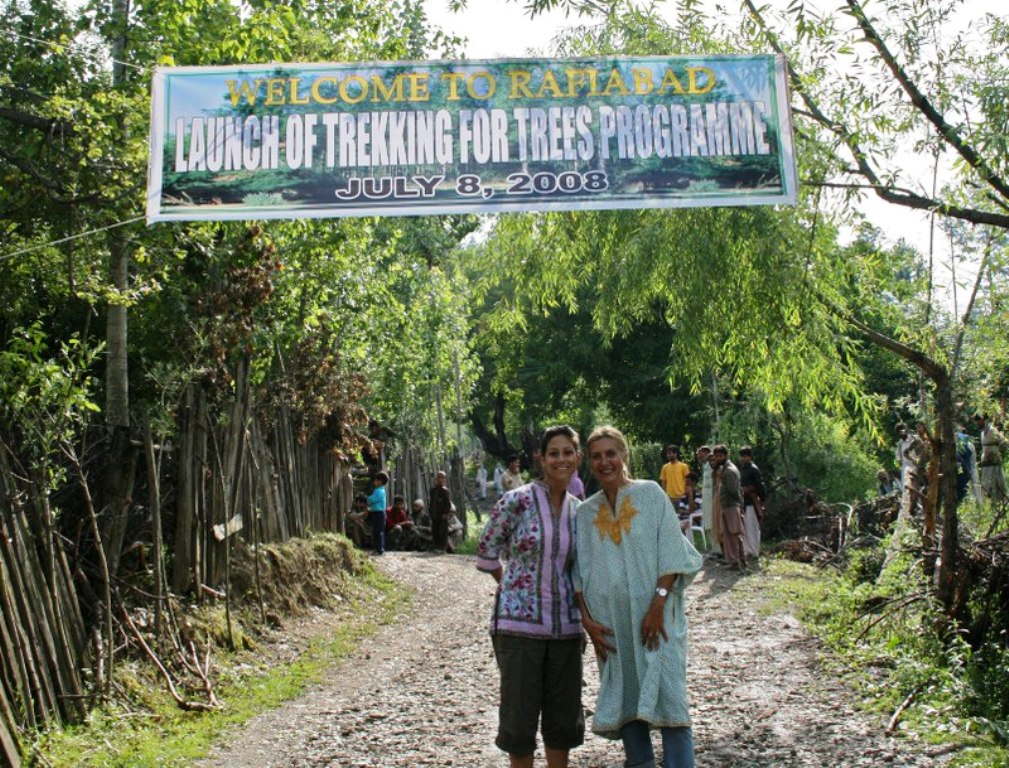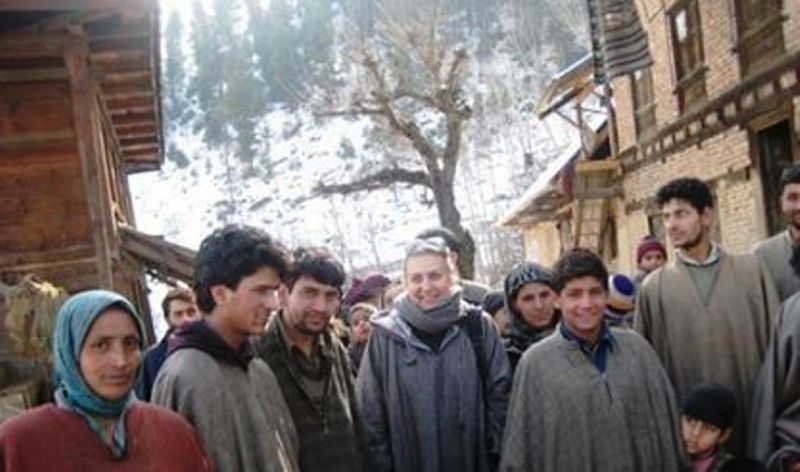by Carin Fischer
It’s now been almost two years since I had to leave my house in the Zabarwan Mountains of Srinagar and I still miss it and Kashmir every waking moment.
It was not the first one I had rented in Kashmir during all the years I was there, but it became my favourite and not just because of the breath-taking beauty of its natural surroundings.

The main reason was that the house was in such a remote and quiet location outside of the city that it allowed me to forget the rest of the world almost the instant I passed through the gate. And this I often desperately needed while living in a place that I loved more than I had loved any other but that often wore me out like only the most passionate love affairs can.
I first came to Kashmir as a tourist in the winter of 2006. It started snowing on the day I arrived and never stopped until I left. Kashmir presented its brightest made for tourism image to me during that short visit.
Sometimes I think it was trying to seduce me into coming back and see another Kashmir which I did and then never left. There was something even during the first visit that I just could not shake after leaving. It was not the love at first sight a teenager might experience. It was more like a deep seated desire to fully understand what was buried under the mountains of snow. It was a craving to meet the real Kashmir and to find out if I could love it as much as Kashmiris so desperately did.
So I came and began working on rural tourism in the remotest of villages because that is what I knew how to do, and it is what Kashmir seemed to want of me at a time when tourism was slowly making a comeback.
I designed a program called “Trekking for Trees” which aimed to turn timber smugglers into trekking guides, and I lived in the upper reaches of North Kashmir’s Rafiabad for a year to develop the program and later did the same at similar places in other districts.
I barely ever made it to Srinagar during that first year except for an occasional meeting. I lived like a villager and I loved it.
Then the land row erupted in 2008, and from one day to the next everything changed.
This of course one gets used to after living in Kashmir for some time, but it never gets easier. Things can change at the drop of a hat. Light becomes darkness, and calm is replaced with madness. But it isn’t the people who are mad; it is the reaction to them that is insane and more violent than anything I could have ever imagined.
It was during that time that I first began to feel an intense sadness and anger, one I had never felt before anywhere and one that never left me for all the years I was there. It was also the time when I realized that one could never love Kashmir without also loving Kashmiris. And that means all of them. And only after understanding that fully, my love affair could truly be consummated.

Just the other day, I read a very touching essay by a friend in which he describes the all-pervasive sadness of growing up in Srinagar. He talks about the beauty of his city, its ancient culture and architectural landmarks, its closeness to nature, and even its spirituality if that is what one seeks. But more than anything he talks about how even as a small boy he never quite felt any real lightness of being because the ghosts of history were always walking right next to him no matter where he went or in which direction.
It became clear to me then that it is this very sadness that after a while one can no longer do without and which becomes the main ingredient of one’s relationship with Kashmir and the people.
I was luckier than most to be able to escape for a little while each day to my house in the mountains whenever I thought I might burst into a thousand pieces.
There were many days when I came home exhausted from feeling sad, happy, angry, and worried and all felt at the same time. But just sitting in my garden and listening to the silence instantly allowed me to stop holding my breath. It was there where I could pretend that all was fine outside the gate before once again facing the onslaught of the other emotions that encapsulate you wherever you go accompanied by the ghosts that never leave your side for a minute. And it is in that house in the Zabarwan Mountains of Srinagar where my heart is buried, and I am sure it will stay there for eternity. Some love affairs never end. And some lovers can never be replaced.
(Carin Jodha Fischer is a German who spent many years in Kashmir attempting interventions on ecological front. This piece first appeared in the website of TV News18.)















